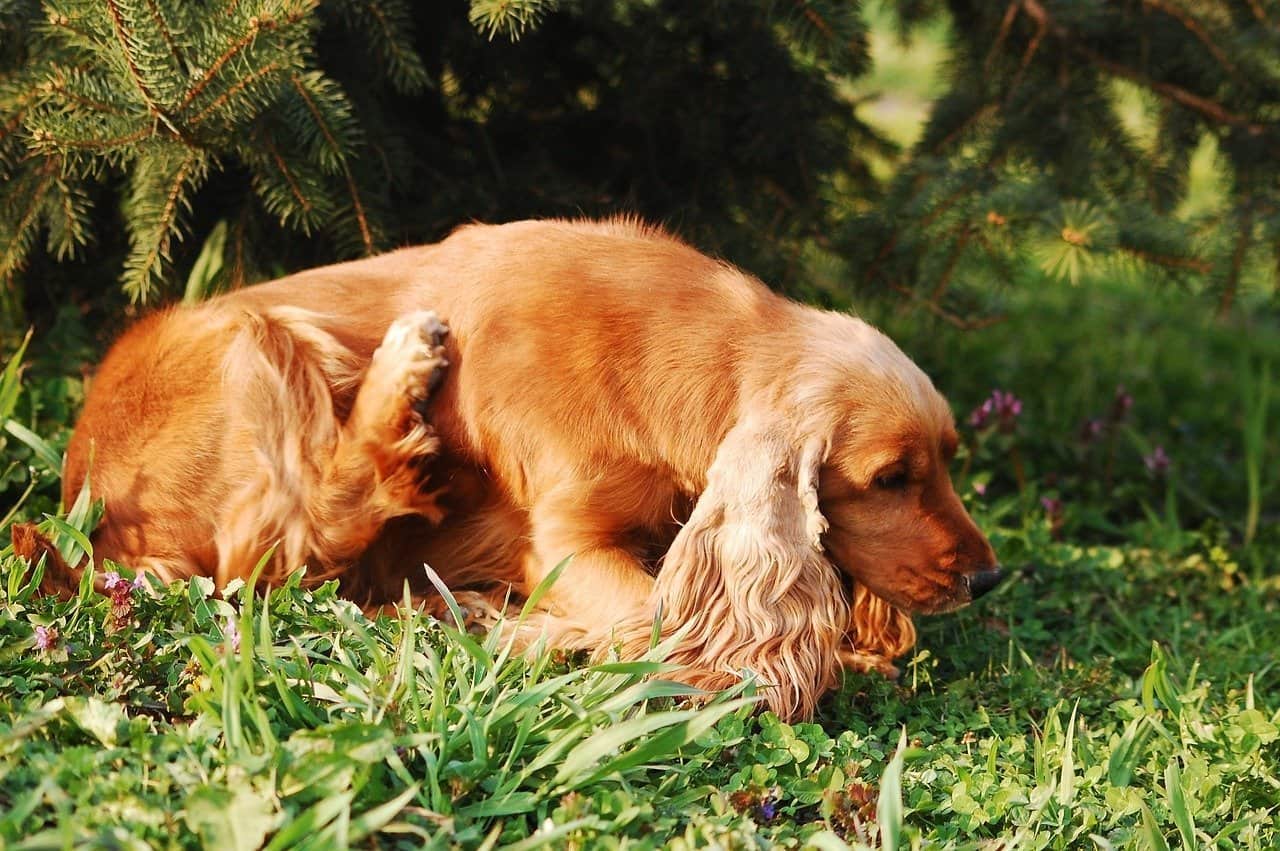The most common reasons why your inside dog suddenly wants to stay outside are:
- Your dog wants to explore the outdoors
- Your pup wants to chase critters in your backyard
- There’s a new dog on the block
- Your pup may be rebelling
- Medical issues
- Psychological reasons
Inside Dog Suddenly Wants to Stay Outside
Are you having trouble understanding why your inside dog suddenly wants to stay outside? You’ve come to the right place.
In some cases, dogs start acting out of character when something is wrong with them. However, sometimes it’s as simple as curiosity.
Understandably, you’re worried about your pup, and you can’t exactly ask it why it’s behaving the way it is.
In this article, I will help you get to the bottom of why your inside dog suddenly wants to stay outside, and whether or not there’s cause for concern.
Any type of new behavior can be worrisome when it comes to our pets, especially if it starts out of the blue.
But don’t immediately think of the worst.
Doggo the Explorer
Puppies tend to bond with their owners in a special way. While they’re young, they’ll follow you everywhere you go.
When you step outside, your dog follows, and the minute you go inside, your dog will do the same.
It’s basically their way of showing us how much they love and trust us.
If you’re a first-time dog owner, then it’s completely normal for you to get confused when your inside dog suddenly wants to stay outside.
Dogs are naturally curious creatures, and as they grow, they feel the need to explore anything and everything.
Additionally, your dog may be bored inside, especially if it doesn’t have any toys to play with.
Critter Season
Let’s face it, every backyard has a critter or two lurking in the grass. However, when spring arrives, there’s definitely more buzzing going around!
Another possibility is that it can sense the presence of another animal, let’s say a skunk.
This smell is new to your dog, so it’s probably going to want to find the source.
As I said, dogs are naturally curious, so it’s normal for your pup to want to investigate every sound and smell.
New Dog On the Block
Did your neighbors get a dog recently? If so, your pup will be the first one to know!
Don’t be confused if your dog keeps sniffing the air and refusing to go inside. It just wants to get to know the new dog on the block.
Keep in mind that a dog’s sense of smell is far more powerful than ours is. It can sense the presence of a new dog from a mile away.
Rebel Doggy Years
Yes, it’s possible. Like us humans, dogs go through a phase when they sort of rebel against their owners.
If you decide it’s time for your dog to come inside, but your dog feels differently, you’re going to get a whole lot of attitude from your pet!
This may be frustrating, but you’ll be happy to know that this behavior is completely fixable.
Medical Issues
The reasons I’ve covered so far are pretty harmless as there are ways to change your dog’s behavior.
However, if your dog is suffering from some underlying medical issues, you will need to take it to the vet for a complete check-up.
The most common medical issues include:
- urinary tract infections
- intestinal parasites
Urinary Tract Infection
If your inside dog suddenly wants to stay outside, is 7 or older, and you notice that it’s urinating far more than usual, you may be looking at a urinary tract infection.
House-trained dogs want to stay outside so they don’t make a mess in your home.
Other signs of a urinary tract infection include:
- licking the urinary opening
- Fatigue, lethargy
- Cloudy urine (in some cases bloody)
- Urine has a strong odor
- Whimpering when urinating
- Vomiting
- Loss of bladder control
If you notice any of these signs, take your dog to the vet as soon as possible.
Intestinal Parasites
Another reason why your dog may not want to come inside is that it could have intestinal parasites. Common signs include:
- Scooting (dragging its rear end on the floor)
- Vomiting
- Diarrhea
- Loss of appetite and weight loss
- Coughing
Intestinal parasites can be incredibly dangerous if not treated, so make sure to take your dog to the vet if you notice any of the above-mentioned signs.
Psychological problems
Pups can have psychological problems as well. For example, if you adopted your dog from a shelter, it may take a while for it to adjust to an indoor environment.
That’s why it’s best to acquire all the information you can about your new pet before taking it home.
Ask the shelter about the dog’s previous living conditions, most importantly whether or not it lived in a house.
Your new dog could simply be used to spending its time outdoors.
Anxiety
Anxiety is pretty common in adopted pets. Just imagine how you would feel in a completely new environment that’s a polar opposite of what you’re used to.
Your pet will need to get used to all the new smells that surround it, so be patient.
In some cases, dogs can get overwhelmed by new scents in your home, and they just want to go out in order to calm themselves down.
That’s actually pretty intelligent behavior when you think about it!
How to Get Your Dog to Come Inside
Now that you have a better understanding of what may be wrong with your dog, let’s talk about how to fix its behavior.
Before I get into the subject, I’d like to say that these methods aren’t applicable if your dog has a medical issue.
In that case, only a veterinarian will be able to help your pooch.
Use a Reward System
Sometimes it just takes a yummy treat to get your dog to obey a command. If your pup feels the need to ignore you when you call it inside, next time, present it with a treat.
Stay inside, and call your dog. Let it sniff the treat, and only when your dog goes through the doorway, let it have the treat.
However, you should never shut the door immediately after your dog comes inside.
That will only make your pup rebel in a different way, as it will feel trapped.
Instead, you will need to repeat this method every day, until your dog understands that coming inside is a good thing because that’s where the treats are.
Get Rid of Any Strong Smells and Loud Noises
As I mentioned, dogs have an incredibly strong sense of smell.
If you have a new air-freshener that’s a bit strong, or you tend to use strong chemicals when cleaning your home, your dog will definitely notice.
In the same way, if your home tends to get a bit noisy (loud TV, noisy kids, etc.) your dog may feel scared.
Remember, your pup needs a calm environment just as much as you do.
The best option is to get rid of strong smells and loud noises. No, I’m not saying you should stop cleaning your home and get rid of the TV.
Simply go for softer scents, and lower the noise level in your home.
Let Your Dog Out More Often
Another possibility is that your dog is bored inside. It’s as simple as that.
In that case, try to take your dog out more frequently, or let it spend more time in your backyard.
Being cooped up inside can feel like a punishment to your dog, so it’s completely understandable if it doesn’t want to come inside when you call it.
Provide New Toys for Your Dog
Toys are always a great option. Buy your pup some new toys to play with when the weather gets bad, and it may start coming inside on its own.
Check out these Dog Toys for dealing with boredom…
The Conclusion
If your inside dog suddenly wants to stay outside, remember: dogs aren’t as complex as human beings (which is a good thing).
The problem may be as simple as boredom, curiosity, or defiance. Also, if your dog is scared of something inside, getting rid of the culprit shouldn’t be too hard.
After all, you love your pet, and you want it to feel at home.
However, if you notice any signs of a medical problem, i.e. urinary tract infection or intestinal parasites, take your dog to the vet as soon as possible.



